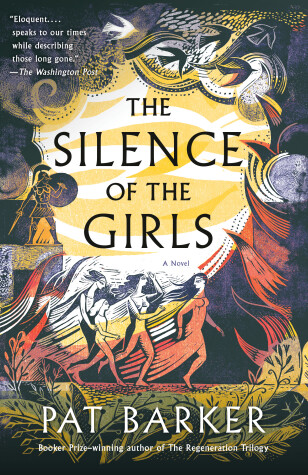Reviewed by gmcgregor on
From the beginning of the book, when her city is being raided, when he kills her brothers, Briseis hates Achilles. This does not change when she's given to him as his reward for valor, but she knows her hatred doesn't matter. She'll be expected to serve at his table and be used in his bed anyways. She has nowhere to run, and they both know it. Although deeply unhappy, she becomes accustomed to her routine with Achilles, becoming close to Patroclus and his own slave girl, as well as the other women of the camp, from whom she hears tales of Agamemnon's cruelty. She's terrified when he takes her, though he mostly ignores her, and is not particularly happy to be returned to Achilles when she eventually is. It's not a pleasant lot, to be an object, a bargaining chip, instead of a person.
Dehumanization, the way it crushes the spirit, is the central theme of the novel. Briseis goes from being a queen in her own right to no more than chattel. The injustice of being expected to serve as a sex object for the men who killed your loved ones and destroyed everything you once held dear is a note struck consistently throughout, though Barker does a good job of keeping it from being the only note or making it feel unduly repetitive. She portrays a range of experiences through the camp women, from those beaten and abused by their captors to those who do their best to work themselves into the good graces of the men who keep them, including by bearing their children. I appreciated that Barker did not fall into the common trap of historical fiction around young women...so often they're written as anachronistically defiant and spunky, but Briseis and her fellow captives feel grounded in reality. Barker doesn't engage in any sort of rhetorical flashiness; rather, the book is an elegant plea to consider the historical voices that we've never gotten to hear.
The lack of flash, though, also works against the book. It's rooted in traumatizing experiences, and if I'm being honest, the lack of a big personality for Briseis or much in the way of hope for her can make it feel like a slog. I imagine this explains why the narrative occasionally leaves the first-person perspective of Briseis and engages in third-person narration of Achilles and Patroclus instead, to try to break out of the rut of Briseis's despair. I don't think it really works...in a novel otherwise focused on giving the viewpoint of the forgotten, focusing on the star characters of the familiar narrative doesn't add anything. It certainly doesn't do anything new or particularly interesting with these characters, leaving their bond open to interpretation. If you want an Iliad retelling that's less technically proficient but has more heart, I'd recommend Madeline Miller's The Song of Achilles. The Silence of the Girls, while certainly not a waste of time, doesn't really enlighten or entertain.
Reading updates
- Started reading
- 13 September, 2018: Finished reading
- 13 September, 2018: Reviewed
